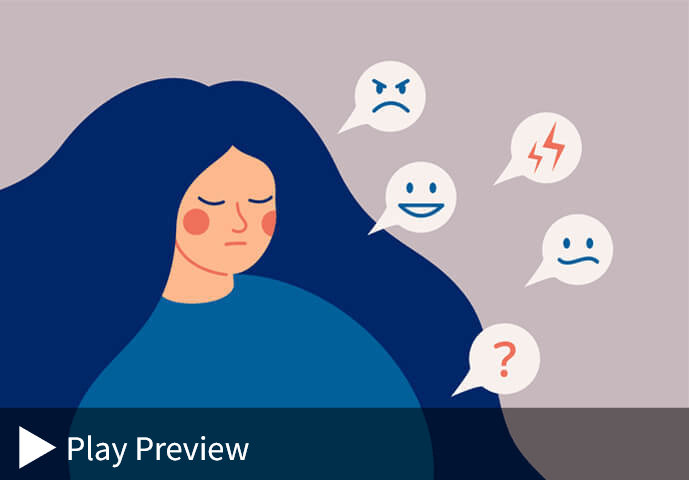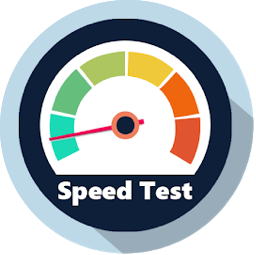
60 minutes of instruction followed by previously recorded Q&A moderated by Dr. Pam Crooke
Age focus: 8 - adulthood
- the impact of alexithymia on emotional regulation and awareness
- how alexithymia can affect the building blocks for spontaneous perspective taking across all contexts
- specific strategies to foster awareness of one’s own and others’ perspective and feelings during active interpersonal engagement
1.5 hours of CE credit (60 minutes of instruction, 30 minutes of previously recorded Q&A) available for select professionals. For any special accommodations or assistance with resources email us.
Browse additional perspective taking resources related this online training course.
What’s Alexithymia? and How Does It Affect Emotional Regulation and Awareness?
Understanding One’s Feelings to Foster Emotional Regulation at School & Home
Brand new course! Replay access through November 30, 2023
Detailed Description
Who should attend
Many educators, clinicians, parents, and others have reached out to us to encourage us to talk about perspective taking and emotional regulation for all students, noting that regulation challenges of all sorts are on the rise.
Perspective taking is not only about understanding one’s own and others’ thoughts; it also includes understanding one’s own and others’ feelings. Building strategies and competencies for emotional awareness is essential for relationship development, working in small groups, and classroom participation. But what happens when a person experiences roadblocks in understanding their own feelings, making it more difficult to engage in perspective taking and emotional regulation throughout the school day and at home—as in the case of alexithymia? Alexithymia refers to challenges in developing awareness of one’s feelings, identifying, and distinguishing them from other physical sensations. Alexithymia is less about naming emotions and more about understanding one’s feelings, whether alone, when sharing space, or relating to others. We’ll explore the irony of how some students and clients can successfully name emotions and describe them through characters in books or movies, yet struggle to identify how they, themselves, feel. We will also discuss the role of alexithymia, a trait found in about 20% of autistics, as well as those with diagnoses, such as ADHD or depression.
In this talk, we’ll begin by exploring the dynamic process of taking both cognitive and emotional perspective during interactions and when coexisting with others in specific situations. It’s a dynamic process which most children are solidly developing by age four and continue to evolve with maturity across their lifetimes.
Central to this talk is demystifying abstract social concepts, such as perspective taking during face-to-face interactions, and how this process also involves spontaneous emotional regulation.
We will define strategies to encourage students to shift from externally recognizing thoughts and feelings of others to internally recognizing and monitoring their own feelings. Attendees will learn specific concrete ways to help students describe aspects of cognitive and emotional perspective taking and identify examples of self-regulation, first in characters within books/shows/movies and then within themselves. Attendees will also learn specific strategies to foster awareness of one’s own and others’ perspective and feelings during active interpersonal engagement. Through this process, attendees will also learn strategies to help students learn ways to become increasingly self-aware, engage in self-monitoring, and ultimately be on a journey toward emotional regulation in a variety of contexts.
Who Should Attend
The Social Thinking Methodology is used by a wide variety of professionals, including speech-language pathologists, special and general education teachers, social workers, counselors, clinical and school psychologists, occupational therapists, behavior specialists, and school administrators, to name a few. It’s also used by family members and caregivers across settings.
Learning Objectives and Agenda
Objectives
Participants will be able to:
- Define the term alexithymia
- Describe two strategies to encourage awareness of one’s own feelings
- Describe a multi-step process that fosters emotional regulation
Agenda
1 hour
- What is alexithymia and why is it relevant across the home and school day?
- Perspective taking, alexithymia, and emotional recognition
- Practical strategies for teaching self-awareness and self-monitoring
30 minute Previously Recorded Q&A with Michelle Garcia Winner and Dr. Pamela Crooke
Continuing Education Credit
1.5 hours toward CE credit, if applicable
Click here to see if you can receive CE credit by Profession and by State
We are proud to provide access to continuing education credit for:
- Speech-Language Pathologists (livestream and recorded)
- Educators (livestream and recorded)
- ...and others!
Technical requirements to participate in online training
Streaming compatible browser

The best browser for streaming is Google Chrome. If you are unable to use Chrome, please make sure the version of your browser is the latest and greatest.
Download ChromeHigh-speed internet connection

Make sure you are accessing the online course on a device that is connected to high speed internet—that means your download speed is at least 25Mbps.
Run Internet Speed TestOpen firewall ports

If you are accessing the online course from your school or organization, ask your network administrator if there are any firewall ports that need to be opened.
Learn More












